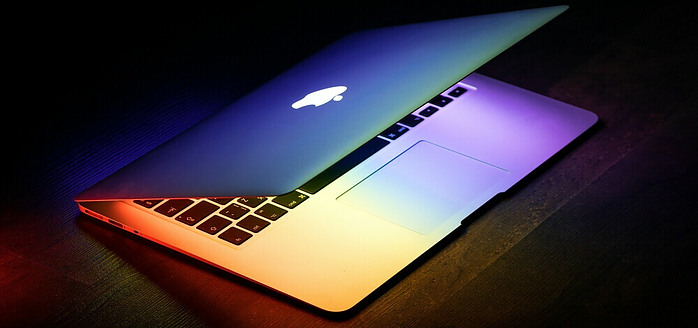
In the ever-evolving realm of technology, the operating system (OS) serves as the backbone of our digital experience. Laptops, being versatile and ubiquitous devices, host a variety of operating systems, each tailored to meet different user needs. Today, four major operating systems for laptops dominate the market, each with specific strengths and drawbacks. Let’s delve into the key players, their providers, supported platforms, and the pros and cons of each.
Understanding the Core of Your Laptop: What is an Operating System?
At the heart of every laptop is the operating system (OS), a critical software component that orchestrates the interaction between hardware and applications. An operating system serves as the intermediary between users and their devices and helps users to interact with their devices seamlessly.
Operating systems undertake the complex task of managing hardware resources like the CPU, memory, storage, and peripheral devices. Additionally, they oversee software resources, ensuring that applications run efficiently and don’t interfere with each other.
The user interface (UI) is the bridge between the user and the operating system. Whether it’s the graphical user interfaces (GUIs) of Windows and macOS or the command-line interfaces of Linux, the UI shapes the user experience and accessibility of the operating system.
The operating system in use significantly influences the overall performance and user experience on a laptop. Factors such as resource optimization, system responsiveness, and the availability of features contribute to the overall satisfaction of users.
Exploring the Diversity of Laptop Operating Systems
Laptops host a diverse range of operating systems catering to various user preferences and needs. The most prominent players include Windows, Linux, macOS, and Chrome OS, each with its unique features and strengths. Let’s have a look now at each of these operating systems.
1. Diving into Windows: The most widely used OS for laptops

Microsoft’s Windows stands as the dominant force in the laptop OS arena. It is known to be user-friendly and to have extensive software compatibility. Windows caters to a broad audience, from casual users to professionals. Regular updates ensure a contemporary experience, and the Windows Store provides a centralized hub for applications.
Provider: Microsoft Corporation
Platforms: Windows is a versatile operating system that runs on a vast array of devices, including laptops, desktops, tablets, and hybrid devices.
Strengths:
- Widest Software Compatibility: Windows stands out for its unparalleled software compatibility. Whether you’re a professional relying on industry-standard applications or a casual user exploring a diverse range of software, Windows provides a vast ecosystem through its Microsoft Store and third-party developers.
- Versatility: Windows is renowned for its versatility, embraced by a broad spectrum of users, from casual users to business professionals. It supports a vast array of software, making it the go-to choice for many.
- User-Friendly Interface: Known for its user-friendly graphical user interface (GUI), Windows ensures that users of all levels, from beginners to power users, can navigate the system with ease. The Start menu, taskbar, and customizable desktop contribute to a familiar and intuitive user experience.
- Gaming Capabilities: Windows is the preferred platform for gamers. With the extensive library of PC games and support for high-performance hardware, Windows ensures a seamless gaming experience. The DirectX technology further enhances graphics and gaming performance.
- Regular Updates and Support: Microsoft consistently provides updates that contain security enhancements, bug fixes, and new features. With reliable customer support and a robust online community, Windows users can find assistance and resources easily.
Drawbacks:
- Security Concerns: Windows has historically been a target for malware and viruses due to its widespread use. Although Microsoft has significantly improved security measures, users must remain vigilant and employ additional security software.
- Resource Intensive: Some versions of Windows can be resource-intensive, demanding robust hardware to operate smoothly. This can cause Windows to be slow on older or less powerful laptops.
2. The world of Linux: Customization and open-source philosophy

Linux, with its myriad distributions (distros), offers a high degree of customization and control. Embracing an open-source philosophy, Linux encourages community involvement and provides a robust platform for developers and power users. Ubuntu, Fedora, and Debian are just a few examples of popular Linux distros.
Providers: Various, including the Linux community and distributions like Ubuntu, Fedora, and Debian.
Platforms: Linux is highly versatile and can run on virtually all laptops, desktops, servers, embedded systems, and more. It boasts extensive compatibility due to its open-source nature.
Strengths:
- Open-Source Philosophy: Linux is built on the principles of open-source software, fostering a collaborative community that contributes to its development. Users can themselves analyze, modify and distribute the source code, promoting transparency and customization.
- Customization and Flexibility: Linux offers unparalleled customization options. Users can choose from several different desktop environments, customize the kernel, and tailor the system to their specific needs. This flexibility makes Linux a favorite among power users and developers.
- Stability and Security: Linux is known for its stability and security. The open-source nature allows constant scrutiny, and vulnerabilities are often patched swiftly. Linux is a preferred choice for servers due to its reliability and robust security features.
- Resource Efficiency: Many Linux distributions are designed to be lightweight, making them ideal for older hardware or resource-constrained systems. This efficiency extends the lifespan of older laptops, providing a sustainable computing solution.
Drawbacks:
- Learning Curve: The learning curve for Linux can be steep for users accustomed to other operating systems. Command-line interfaces are common, which might intimidate those unfamiliar with terminal commands.
- Software Compatibility: While Linux has made significant strides in software compatibility, especially for popular applications, some specialized software and games are still designed primarily for Windows.
3. The exclusivity of macOS: Seamless integration with Apple hardware

macOS is exclusive to Apple hardware. It offers a seamless and integrated experience on Apple devices. Known for its sleek designs and intuitive interfaces, Apple devices with macOS appeal to creative professionals. The Mac App Store simplifies software acquisition, while features like Handoff and Continuity enhance the synergy between Apple devices.
Provider: Apple Inc.
Platforms: macOS is exclusive to Apple hardware, running on MacBook, iMac, Mac mini, and Mac Pro.
Strengths:
- Sleek Design and Intuitive Interface: macOS is celebrated for its elegant design and intuitive user interface. Apple’s attention to detail creates a seamless and enjoyable user experience.
- Integration with Apple Ecosystem: macOS is renowned for its seamless integration with other Apple devices. Features like Handoff, Continuity, and AirDrop create a cohesive user experience across iPhones, iPads, and Macs. The iCloud service ensures synchronization of data and files.
- Creative Powerhouse: Catering to creative professionals, macOS is a favorite for tasks like graphic design, video editing, and music production. Applications like Final Cut Pro, Logic Pro, and Adobe Creative Suite are optimized for macOS, providing a robust platform for content creation.
- Stability and Performance: Apple’s closed ecosystem allows for better optimization between hardware and software, resulting in a stable and high-performance environment. macOS is often praised for its reliability and smooth operation.
- App Store Curation: The Mac App Store offers a curated selection of applications, ensuring a secure and streamlined experience for users looking to discover and install software.
Drawbacks:
- Limited Hardware Compatibility: macOS is exclusive to Apple hardware, limiting choices for users who prefer a diverse range of laptops. This exclusivity often comes with a higher price tag.
- Software Availability: While macOS supports a robust suite of applications, some software, especially specialized or niche programs, may have limited availability compared to Windows.
4. Chrome OS: A cloud-centric approach for lightweight computing

Designed for lightweight and portable Chromebook devices, Chrome OS relies on cloud-based applications and services. Google’s operating system emphasizes simplicity, security, and speed. Chromebooks, running Chrome OS, are popular choices for users primarily engaged in web-based activities and cloud computing.
Provider: Google Inc.
Platforms: Chrome OS is designed exclusively for Chromebooks, emphasizing lightweight and portable devices.
Strengths:
- Cloud-Centric Approach: Chrome OS revolves around the cloud, and focuses on web-based applications and services. Google Drive integration ensures seamless access to files and data from any device with an internet connection.
- Speed and Simplicity: Chrome OS is known for its quick boot times and streamlined interface. The minimalist design, featuring the Chrome browser as the primary interface, appeals to users seeking a straightforward and efficient computing experience.
- Security through Sandboxing: Chrome OS employs a sandboxing approach, isolating each application to enhance security. Automatic updates ensure that devices are always running the latest, most secure version of the operating system. The limited local storage also reduces the risk of data loss due to device theft.
- Cost-Effective Devices: Chromebooks are often more affordable than their Windows and macOS counterparts. This, coupled with the low maintenance requirements and ease of use, makes Chromebooks with Chrome OS an attractive choice for educational institutions and budget-conscious users.
Drawbacks:
- Limited Offline Functionality: Chrome OS heavily relies on an internet connection. While offline functionality has improved, users who frequently find themselves without internet access may face limitations.
- App Availability: While many Android apps are compatible with Chrome OS, the selection may not be as extensive as the libraries available on Windows or macOS.
Choosing the Right Operating System for Your Laptop Lifestyle
Assessing your needs
Selecting the right operating system hinges on your specific needs. Windows is versatile, Linux offers customization, macOS excels in creative tasks (but is exclusive to Apple devices), and Chrome OS suits those with cloud-centric requirements (and only runs on Chromebooks). Consider your needs and priorities accordingly.
Platform requirements
If you are looking to use a particular operating system, consider the hardware platforms that it is compatible with. Windows and Linux are highly versatile and can run on a wide variety of laptops from different manufacturers. macOS is exclusive to Apple devices, so if you wish to use macOS, you will have to get an appropriate Apple device. Chrome OS runs exclusively on Chromebooks, which have a variety of manufacturers from which you can choose.
Compatibility check: Software and peripheral devices
Ensure that your chosen operating system supports the software you need for your tasks. Windows boasts extensive software compatibility, while macOS excels in creative applications. Linux may require more research, and Chrome OS is geared towards web-based applications. Also, consider peripheral device compatibility for printers, cameras, and other accessories.
Security and privacy considerations for each operating system
Security is paramount in the digital age. Windows, although it comes with robust security features, has historically been a target for malware and viruses due to its widespread use, and users must often employ additional 3rd party security software. Linux benefits from its open-source community for constant scrutiny and is known for its stability and security. macOS offers a closed ecosystem, reducing vulnerability, and Chrome OS relies on sandboxing and automatic updates for a secure experience. Assess your security and privacy preferences before making a decision.
Community and support: Finding help and resources
Consider the availability of a supportive community for your operating system and resources for troubleshooting and learning. Windows boasts a vast user base with extensive online support. Linux benefits from its active community forums, and macOS users can turn to Apple’s support resources. Chrome OS users can leverage Google’s support channels.
Future-proofing: Updates, upgrades, and long-term support
Regular updates and long-term support are crucial for a sustainable computing experience. Windows and macOS provide consistent updates, with Microsoft offering a clear upgrade path. Linux distributions vary in their update frequency, and Chrome OS ensures automatic updates for a secure and up-to-date system. Evaluate the future-proofing strategies of each operating system to make an informed choice.
Conclusion
In conclusion, the landscape of laptop operating systems is diverse, catering to a wide range of preferences and needs. The choice of an operating system for your laptop is a significant decision that directly impacts your computing experience. Understanding the core functions, exploring the diversity of options, and aligning your needs with the strengths of each OS will guide you towards a choice that suits your lifestyle and preferences.
Whether you prioritize software compatibility, seamless integration, customization, or a cloud-centric approach, the choices offered by Windows, macOS, Linux, and Chrome OS ensure that users can find an operating system that aligns with their lifestyle and computing requirements.
With the continual advancement of technology, these operating systems will undoubtedly evolve, providing even more innovative features and functionalities for laptop users around the globe.
To browse a wide range of laptops by operating system, visit Amazon today.
(As an Amazon Associate I earn from qualifying purchases.)

When you use the links on this page to make a purchase, I may get a small commission and you may get a great bargain. It’s a win-win all around. View the full disclosure here.
No responses yet